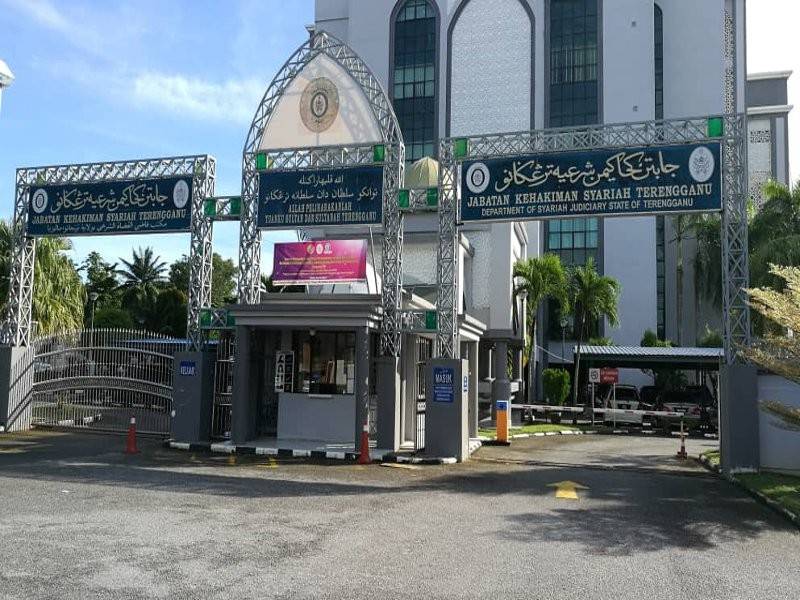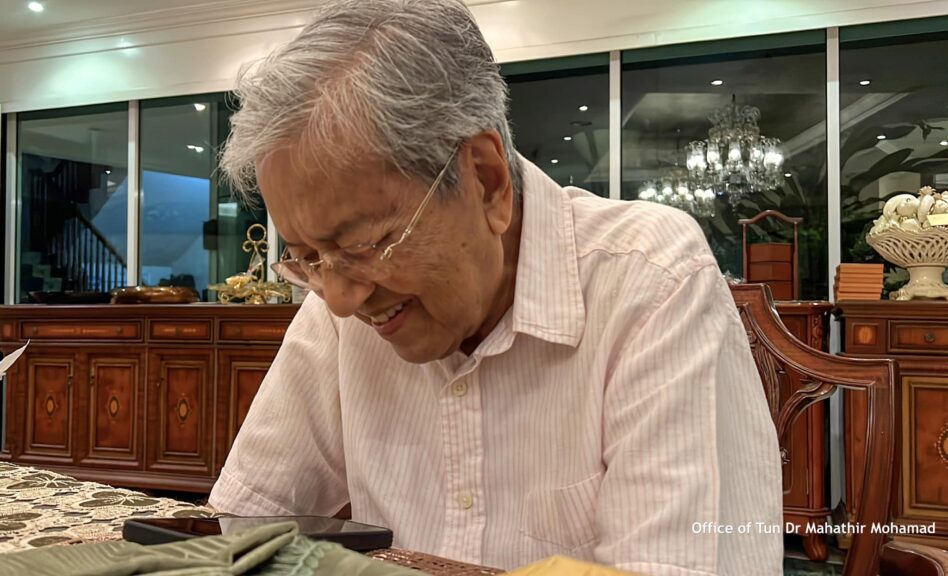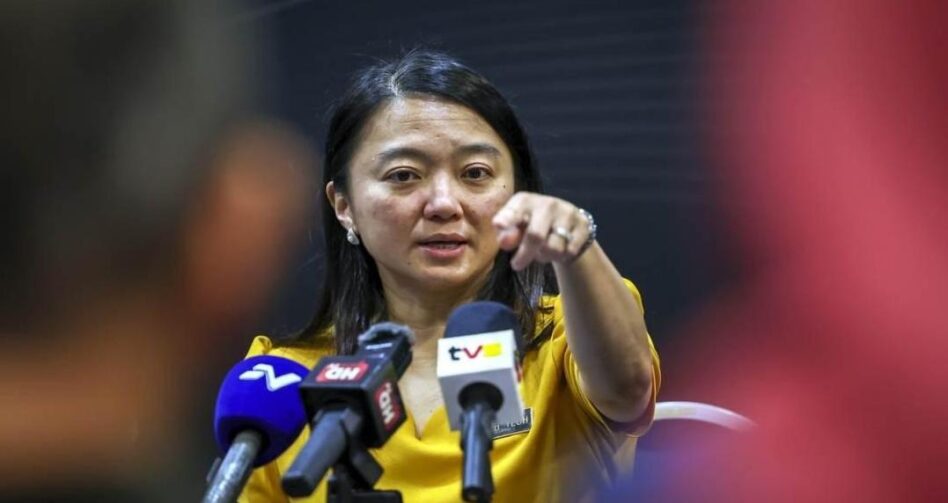 By P Gunasegaram
By P Gunasegaram
HIGHWAY toll concessionaire PLUS Malaysia Bhd, the largest toll operator in Southeast Asia and among the largest anywhere, is owned by Khazanah Nasional Bhd (51%) and the Employees Provident Fund or EPF (49%).
Khazanah is of course wholly government-owned but incorporated as a company with its own board of directors while the EPF is the repository of retirement savings for Malaysian workers set up under an act of Parliament.
But strangely – and worryingly – none of the suitors for PLUS Malaysia have directed their bids for PLUS to the legal owners of PLUS. Instead, it is the Works Ministry headed by Baru Bian which is being treated as the owner.
Why this is so is anybody’s guess, but probably the most educated one is that it is being done to circumvent the approval of the only two shareholders of PLUS, both of whom have indicated they don’t really want to sell.
And in the process thereby also circumventing the process set up to have proper, independent control processes via internal rules as well as through a properly constituted board of competent, independent professionals.
Now, where have we heard of that kind of meddlesome behaviour where politicians interfere in corporate matters, even if they are of government-linked companies or GLCs, and causing tens of billions of ringgit of losses?
No marks for getting the right answer, yes 1MDB – many do not think of 1MDB as a GLC, but that’s exactly what it was and is. And we all know – if we did not the court cases would have elucidated us rather well – that the board was kept in the dark about many decisions as it is right now. And we also know that the cabinet at that time was bamboozled into making the necessary approvals to enable the theft at 1MDB.
And remember, PLUS has considerable assets valued at RM30 bil several years ago after it was taken private in 2000. The value currently may be much higher than that considering that the toll concessions have been extended and other revisions made.
It would be no exaggeration to say that if the wrong move is made, the government can lose lots of money which might amount to as much as that lost through 1MDB or even more. That is not farfetched.
Remember, most bids (see chart) involve extending the concession by a further 20 years, more than doubling the current remaining period to concession expiry of 18 years. That means it has the potential to double the value of PLUS – if it is RM40 bil now, then the value could increase by a further RM40 bil!
The offers for PLUS
| Offerer | Latest Offer | Extension | Govt Guarantee | Toll reduction |
| Abu Sahid Mohamed | RM3.5 bil | Yes | Yes | Yes |
| RRJ Capital | RM3.5 bil | Yes | Yes | Yes |
| Halim Saad | RM5.2 bil | No | Indeterminate | Yes |
| Widad Business Group | RM5.3 bil | Yes | No | Yes |
Source: News reports
With 1MDB in mind, how ironic that this new government is doing the same thing with PLUS and bypassing the proper authorities to vet the bidding process for PLUS – PLUS directors and ultimately Khazanah directors together with the boards of intermediary companies such as UEM with help from truly independent advisors.
The bids for PLUS have been channelled to the Works Ministry. Bernama reported that its minister Baru Bian said discussions are ongoing between the ministry, Economic Affairs Ministry and Finance Ministry on the issues related to the acquisition of PLUS and toll roads.
He said the memorandum on issues related to the acquisition of PLUS and the future direction of toll roads in the country is expected to be presented to the Cabinet by the middle of this month.
The first meeting between the three ministries was held last week while the second one would be held in the near future, he said.
“We have already held a meeting; they (officials of three ministries) will meet again. After all issues (PLUS and toll roads) have been discussed, there will be a memorandum to be presented to the Cabinet based on the (joint) decision of the three ministries.
“So this is to be done shortly – we are targeting the middle of this month, if possible. That’s the latest development thus far. For the time being, this meeting is just between the three ministries,” he said adding the government has received five offers to take over the PLUS-operated toll highways. The fifth, not listed in the table, may well be the finance ministry itself.
But why are Khazanah and EPF not being consulted? Even if the bidders are eyeing just the 51% being held by Khazanah, they should be required to make a similar offer to the EPF.
And surely, Khazanah and EPF, as the parties who made the joint general offer to PLUS and offered cash of RM23 bil then in October 2010 have substantial, valuable insights to offer as to how PLUS was valued then.
The Star reported that the deal was the largest merger and acquisition in Malaysia to date then and was tied in with an announcement in Budget 2011 that the government would not raise toll rates for PLUS-owned highways for the next five years.
EPF’s deputy CEO (investment) Shahril Ridza Ridzuan (now Khazanah’s CEO) said in a statement then that the deal gave EPF an opportunity to acquire a “mature, cashflow-generating asset with an attractive risk-return profile, which would provide stable returns for our contributors’ retirement savings.”
He added: “We believe that ownership by EPF and UEM will allow PLUS to improve its financial performance further.”
According to Izzaddin Idris, chief executive of UEM then, “PLUS, which is the fifth-largest expressway operator in the world, is a key national asset. Expressway development and management remains one of UEM’s core focus areas and UEM will continue to leverage PLUS’ track record for its international growth plans.”
The valuation of PLUS, because it involves long-term concessions, is rather complicated. Cash flows are difficult to predict but in the past projections have exceeded expectations by large amounts.
Because cash flows are quite definite due to agreed-upon toll rates, the risk of earnings surprises is quite low from year to year which implies that the earnings will enjoy comparatively high valuation rates.
Such factors are not easily comprehended by the layman and even ministers and other professionals who have no or little training in valuation methods. It is imperative that professional valuations by different independent advisers are done and properly scrutinised.
That all of these seem to have been set aside (otherwise why have they not been disclosed in the interest of proper governance, transparency and accountability?) in favour of ministerial and prime ministerial prerogative can lead to disastrous results as in 1MDB.
All those involved in the approval process should remember the recent Federal Court decision that the prime minister (and ministers) can be sued in court because they are public officers. Any decision which is detrimental to the national good opens those who make the approval open for legal action.
Government assets can no longer be disposed at the whim and fancy of the prime minister and the cabinet – there has to be due process.
P Gunasegaram, who holds the Chartered Financial Analyst designation, is the editor-in-chief of Focus Malaysia. He was a former equity analyst and head of research, routinely valuing companies.









